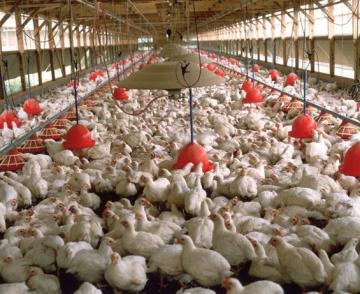
Section Branding
Header Content
Ga. Poultry Industry Fights Trade Laws
Primary Content

Georgia poultry producers are pleading with Congress to ease Cold War-era trade restrictions against Russia that they say could hurt one of the state's key agricultural industries.
Russia is the third biggest export market for U.S. chicken, of which Georgia is by far the largest producer, says Mike Giles, president of the Georgia Poultry Federation.
"In the United States consumers generally tend to prefer white meat, and in Russia consumers tend to prefer the dark meat, so it's just a good balance," Giles said.
But the trade relationship has been rocky in the past; Russia banned U.S. chicken for five months in 2010 over safety concerns, and they've instituted tariffs to slow imports and spur domestic meat production.
These should be matters that Russia and the U.S. can work out in the World Trade Organization, which Russia joined in August. But there's a hitch, says University of Georgia agricultural economist Glenn Ames.
"There is an amendment to the Trade Act of 1974 that said that we had to certify that Russia and the former Soviet Union would allow people to leave freely from their country," Ames said.
Emigration rights haven't been an issue in Russia since the Iron Curtain fell, and U.S. presidents have waived that annual certification requirement routinely for 20 years.
But, Ames says, the amendment needs to come off the books before the U.S. can negotiate with Russia through the WTO.
Republican leaders in the U.S. House blocked a vote on a measure to revise the Trade Act ahead of the presidential election, as GOP candidate Mitt Romney was campaigning as a Russia hawk.
The Georgia Poultry Federation has joined its counterpart organizations in other poultry-producing states in sending a letter to lawmakers urging them to take a second look during the lame duck session of Congress.
A bill normalizing trade relations with Russia advanced through the House Rules Committee Tuesday, and a vote is expected this week.
Tags: Russia, chicken, Georgia Poultry Federation, Adam Ragusea, trade relations
Bottom Content

